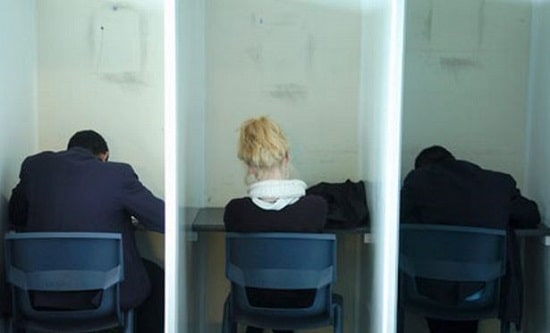
Fight Racism! Fight Imperialism! 268 February/March 2019
Schools used to ‘expel’ pupils but today they ‘exclude’ them. Exclusion is either permanent or temporary, usually three days, but a pupil may be given multiple temporary exclusions in a school year. The number of children permanently excluded from state primary, secondary and special schools in England and Wales increased by about 1,000 to 7,700 in 2017, more than 40 permanent exclusions a day compared to 35 in 2016. Temporary exclusions also increased, by 40,000 to 382,000 – meaning nearly one in 20 pupils suffered a fixed-period exclusion.
Who are the excluded?
Nearly half of temporary exclusions are pupils with special educational needs, who are permanently excluded at a rate six times higher than others. Pupils from the Traveller of Irish Heritage and Gypsy/Roma ethnic groups have the highest rates of both temporary and permanent exclusions. Black Caribbean pupils were permanently excluded at nearly three times the rate of White British pupils; boys are three times as likely to be excluded as girls. Pupils eligible for Free School Meals, an indicator, however inadequate, of poverty, are around four times more likely to be permanently or temporarily excluded than others.
There are also geographical variations. The national average of pupils receiving at least one exclusion in the last academic year was 4.6%. In the North East and the West Midlands pupils are twice as likely to be excluded from school as children in South East England. Certain Multi Academy Trusts (MATs) like the Outwood Grange Academy Trust, gave at least 20% of pupils a fixed term exclusion in 2016-17, and Outwood Grange in Ormsby excluded 41% of pupils, giving out 2,405 fixed-period exclusions to 274 pupils in one year.
Other children are excluded by their situation, such as those in custody and in Young Offenders Institutions, where the theoretical right to education is dependent on staffing. Children in immigration centres or temporary accommodation also rely on teacher availability.
Reasons for exclusion
The most common reason given for exclusion is ‘persistent disruptive behaviour’, but has this escalated dramatically over the last year or have certain behaviours been reclassified as punishable offences? Is talking and failure ‘to keep up’ now regarded as ‘disruptive’ in the exam-driven, competitive regime of testing and targets? Academic success is today the sole measure of school merit and funding depends on it. Most secondary schools have a home/school contract to be signed by the parent/carer, and breaking this contract for even minor infractions like wearing the wrong shoes is increasingly used as grounds for exclusion.
The practice of physical ‘internal’ exclusion has also grown, and many schools, particularly Academy Schools, use ‘punishment’ rooms where children are kept in solitary confinement all day and let out for the toilet etc when others are in class. Records on the frequency of this punishment may be available in local authority schools, but they are not in the public domain for Academies and ‘free’ schools.
Another kind of exclusion that has increased is ‘off-rolling’. This is the removal of thousands of names from the school register before GCSE examination for pupils with poor predicted grades. Neither the DfE nor local councils collect information on ‘disappeared’ pupils.
A different view
In November 2018 Michelle Obama revisited Elizabeth Garrett Anderson (EGA) Girls School in Islington, London. EGA is built next to the site of a famous, or notorious, school of the past, Risinghill School. This early comprehensive school opened in 1960 under the headship of Michael Duane. Risinghill’s intake was very largely the poorest children of the locality. After five years of Duane’s headship, candidates for the O-Level exams had risen from 18 to 80 and the number of children on probation had fallen from 98 to only nine. Risinghill, which had so clearly demonstrated success through standard benchmarks, was then closed by the Inner London Education Authority in 1965 despite a widespread campaign to keep it open.
Michael Duane was active in a radical school movement that challenged the authoritarian ethos of education for the working class. He insisted on ‘courteous’ relationships throughout the school and set up a school council with a majority of pupils. The atmosphere in the school became ‘cordial, racially harmonious and free from fear’. There were no expulsions and no corporal punishment. Caning, slapping, punching and rapping knuckles were then common practice for disobedience, failure to complete work and ‘cheek’.
Duane’s stand against institutional violence was seen as subversive of the natural order, and in the words of the authorities, ‘sometimes in avoiding terror, the school has abandoned awe’. A hostile inspection report recommended the reintroduction of corporal punishment and expulsion, but Duane refused. The official ban on corporal punishment did not come into force until 1986 in UK state schools and not until 1998 in private schools in England and Wales.
The movement for radical change to children’s lives, how they learn and experience schooling spread widely in the 1960s as an emancipating push against the traditional view that education for the working class is to teach obedience to authority. It was opposed and defeated by urgencies of the 1970s economic recession and the determination of Callaghan’s Labour government that school should enforce ‘employability’ skills as the way to bring the nation into a competitive global economy.
Today it is compulsory for children to attend school, sit examinations and obey the parent/school contract or else lose access to education through exclusion. Duane would have been shocked by the systemic use of rejection and failure as tools of learning. Start with no more exclusions, temporary or permanent, and make schools ‘cordial’ for all pupils, teachers and parents.
Susan Davidson




